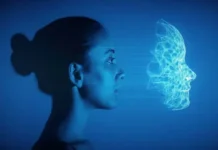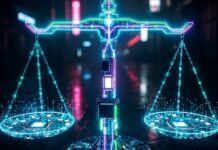The rise of artificial intelligence (AI) is transforming the creative processes that have long underpinned marketing agencies. What was once driven purely by human ideation, instinct, and artistic experimentation is now being enhanced and accelerated by machine learning models, generative tools, and intelligent automation. According to a recent Adobe survey of more than 600 marketing leaders, AI and automation are now deeply integrated into marketing workflows from generative content creation and audience personalization to advanced analytics and campaign optimization. Today, AI is no longer just a buzzword in the marketing world it is a transformative force driving efficiency, scalability, and innovation across the entire creative ecosystem.
In a marketing agency context, creativity must scale. Campaigns must be both personalized and performance-driven, often across dozens of channels. The result? A growing need for faster iteration, deeper insights, and consistent brand storytelling at scale. AI steps in as a technological enabler, not a replacement, helping creative professionals push the boundaries of ideation, production, and execution.
Table of Contents
Ideation at the Speed of Thought
One of the earliest stages of any creative process is brainstorming. Traditionally, creative teams in a marketing agency would meet in collaborative spaces, bounce ideas off each other, and draft preliminary concepts. While this method remains foundational, AI tools like ChatGPT, Jasper, and Copy.ai are augmenting ideation with natural language generation (NLG), enabling teams to generate dozens of thematic directions, ad copy samples, or tagline variants in minutes.

These models work by analyzing massive datasets across various industries, consumer behavior, and brand tones to suggest contextually relevant content. In practice, this means that a creative director can input a client brief and immediately receive multiple creative prompts, helping the team think more expansively and reducing ideation bottlenecks.
Data-Informed Creativity
Modern marketing is data-driven, and AI thrives on data analysis. In the creative workflow, AI can analyze consumer engagement, social sentiment, A/B testing outcomes, and behavioral analytics to inform decisions at every stage of the process. For instance, predictive analytics can determine which type of visuals or messaging resonates with specific demographics, providing valuable feedback that informs the design process.
For a marketing agency managing multichannel campaigns, this data-centric approach ensures that creativity is not just expressive but also effective. Tools like Adobe Sensei and Google Cloud’s AI solutions can recommend design elements, colors, or layouts based on real-time performance data. As a result, creatives can strike a balance between originality and optimization, ensuring their work connects more precisely with target audiences.
Generative Design and Content Automation
Perhaps the most radical innovation lies in AI’s ability to generate visual and written content autonomously. Generative AI tools like Midjourney, DALL·E, and RunwayML can create stunning visuals from text prompts. These tools are now being embedded into the toolkits of marketing agencies to prototype creative concepts or even produce polished campaign assets rapidly.

For video production, AI tools can automatically generate scripts, suggest scene transitions, or even synthesize voiceovers. In short-form content, AI-based video editing platforms can compile highlights, adjust pacing, and apply brand assets with minimal human input.
This level of automation frees up creative teams to focus on high-level strategy and storytelling while delegating repetitive production tasks to intelligent systems, the approach behind the RTasks. It also enables smaller marketing agencies to scale their creative output without incurring proportional increases in cost or staffing.
Personalization at Scale
Personalization has moved beyond basic name tokens in emails. Today, marketing agencies are expected to deliver content that feels tailor-made for each user across channels, devices, and moments. AI makes this possible by powering dynamic creative optimization (DCO).
AI enables agencies to create modular content that adapts to user data enriched by IoT Artificial Intelligence, including location, behavior, and preferences. Programmatic platforms can then deliver real-time, personalized ads with tailored products, headlines, or calls to action.
This kind of 1:1 personalization would be impossible to execute manually. AI transforms creative workflows by enabling agencies to build adaptive content frameworks that enhance engagement and drive conversions.
Collaborative Intelligence and Workflow Integration
AI tools are not just standalone assistants; they are being integrated directly into the platforms that creative teams already use. Adobe’s Firefly, Canva’s Magic Write, and Figma’s AI plugins enable creatives to leverage AI functionality within familiar environments.

Additionally, AI-driven project management tools can streamline the end-to-end workflow, from the intake of creative briefs to asset approval. By analyzing timelines, workloads, and past results, AI recommends efficient project paths, allocates resources, and flags risks early.
This intelligent layer enhances collaboration across departments, aligning strategy, design, copy, and media buying into a more cohesive ecosystem.
Ethical and Human Considerations
While AI can supercharge the creative process, it’s essential to maintain human oversight. Ethical considerations surrounding deepfakes, misinformation, copyright, and bias require a responsible framework. A marketing agency must establish clear policies regarding AI usage, ensuring transparency and authenticity in all creative outputs.
Moreover, creative storytelling still requires human empathy, cultural context, and brand intuition elements that AI cannot replicate. The future of creative work is collaboration AI handles the heavy lifting while humans shape the story, emotion, and meaning.
The Future: Augmented Creativity
AI is not replacing creatives; it is augmenting them. The most forward-thinking marketing agencies are embracing AI as a creative collaborator, not a competitor. This partnership allows for rapid prototyping, agile experimentation, and scalable production.
As AI becomes more embedded in tools and workflows, the very definition of a creative team is evolving. Tomorrow’s top agencies will team up with AI to create faster, smarter, and more human content.
In a world of limited attention and high expectations, AI helps agencies deliver impactful creative that stays true to brand identity and purpose. The agencies that embrace this transformation will not only lead the market but help redefine it.











